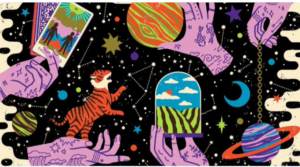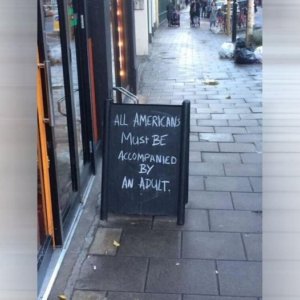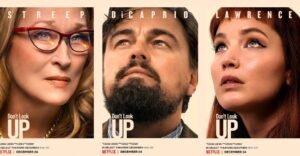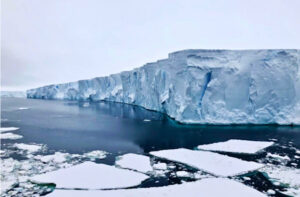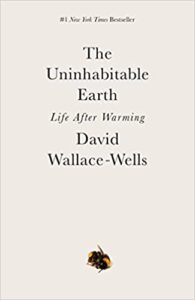Final Days
Final days. #2022
December 30, 2021‘I regret nothing.’ -Edith Piaf
‘I’ve learned a great deal this year. What kind of year did you have? No matter how many challenges you’ve had, no matter what pain you’ve endured, did you do your very best? Then have no regrets.’ -A. Stoddard
As a collective we should have so many, and we can do so much better. We must. -dayle
Brian McLaren from the Center of Action and Contemplation:
“Something beautiful lies ‘unveiled’ on the other side of complexity and perplexity.”
Gatekeepers have long built razor-wire fences around us with
- beliefs
- rules
- policies
- controversies
- budgets
- programs
- activities
- rituals
- offerings
- inquisitions
Spirituality, though, is available to everyone, like wind, rain, and sun. [Brian McLaren] This is what we harness and share, and protect. “In politics, we’ve been studying war for centuries. We must now study how to crate the conditions for deep and lasting peace. We must now cherish life on earth and engage with it by focusing our best energies on learning to love neighbor, self, earth, and God…Gaia…who is Love.”
LATimes
What LA astronomers and diviners have in store for you in 2022.
-Deborah Netburn, staff writer
‘Spend time dreaming about the world in which you want to live…get specific about what real-life steps you can take to make it a reality. Ask, what does it mean to you to release the Earth, working with others to help the land rest more?’
Full piece [paywall]:
‘These are scary, uncertain times. The pandemic has thrown our lives into chaos once again. Global warming has upended the predictable flow of the seasons. The political climate is divisive and volatile. With all this anxiety swirling around us, is it any wonder that tarot readers, astrologers and other divinatory practitioners say they’ve never been busier? All of us want to know what will happen next.
From the Oracle at Delphi to the Yoruba practitioners of Ifá, there are myriad ways to approach divination and myriad reasons for wanting to see into the future. These tools can be seen as a framework to make sense of the events in our lives. Through this lens, divinatory practices encourage believers to pay attention to the patterns in their lives and the cycles of nature and to move through time with intention.
Los Angeles is among the most spiritually diverse cities in the world; we live alongside thousands of divinatory practitioners from a wide range of traditions — many of whom have devoted their lives to the study of ancient practices that go back thousands of years. As we enter a new calendar year, I asked a handful of them what archetypal energies they expect we’ll encounter over the next 12 months and how we might prepare.’
[Posted on twitter, as seen outside a pub in Europe.]
Eric Holthaus, The Phoenix:
“Any time a climate movie breaks through, it’s worthy of celebration. But this isn’t an ordinary climate movie. #DontLookUp![]() is special.”
is special.”
In the last days of 2021, a year in which Texas froze and the freakin’ ocean caught fire, the number one movie in the world on Netflix is a star-studded climate movie that’s not about climate.
Let me be super clear: Any time climate breaks through, it’s worthy of celebration. But this isn’t an ordinary climate movie. Don’t Look Up is special.
Watching it last night for the first time, I was legitimately blown away by how much I felt like I could relate to the main plot — well-meaning scientists being ignored because their message wasn’t pleasant or profitable. I was scared to watch it because I was worried it would make me feel even more depressed than I already do about being a climate communicator during these decades of climate delay, but it’s just the opposite. This is the climate movie I was waiting for.
“The reason I think Don’t Look Up works so well is because the film’s creators did their homework. There are so many Easter Eggs thrown in throughout that it’s like a love letter to climate activists. There is a massive, waiting audience for authentic climate movies like this that speak to the deep, existential anxiety of being alive at this profoundly terrifying moment in history. We know how to solve the climate emergency — stop burning fossil fuels, build up a circular, caring society, and shift political power so that nothing like it ever happens again — and yet our leaders are staring us straight in the face and saying no.
Director Adam McKay wrote that his own climate anxiety after reading David Wallace-Wells’ The Uninhabitable Earth helped inspire the film, and screenplay co-writer David Sirota wrote that empowering the climate movement was a primary goal of the film.
I reached out to McKay and Sirota, and they both confirmed this hunch I had that the movie wasn’t just a political satire, it was a gift for battle-weary activists after several long, hard years of struggle. “We literally made Don’t Look Up for the climate community,” McKay told me.
When I asked Sirota about the movie’s lack of a preachy, prescriptive call-to-action takeaways at the end, he said that was intentional.
“We want it to be a clarion call for the movement,” Sirota said, “But also respect that the movement should decide its tactics.”
The movie isn’t perfect. There’s too much of a focus on the United States, and there’s a valid criticism that seeking action from corrupt politicians during a time of crisis is counterproductive. We know that climate action at the scale and scope we need will only come from collective movements.
But that’s exactly our job now — tell more climate stories that build on this one.
This isn’t a movie that could exist without the decades of failures that have happened so far. But it’s also a movie that finally FINALLY acknowledges that the lynchpin to taking action on climate isn’t about data or carbon or graphs, it’s about finding our shared humanity.
That part is working:
Authentic climate action is way easier than shooting nukes at a comet — it’s treating each other and the Earth better. It’s listening. It’s building systems of power to replace the systems that have been built to kill us.
It’s up to us, the climate movement, to redirect the energy that Don’t Look Up gives us.”
David Wallace-Wells:
“Globally, 250 million people live within three feet of high tide lines. Ten feet of sea level rise would be a world-bending catastrophe. It’s not only goodbye Miami, but goodbye to virtually every low-lying coastal city in the world.”
“Thwaites Glacier is the size of Florida. It is the cork in the bottle of the entire West Antarctic ice sheet, which contains enough ice to raise sea levels by 10 feet.” The great Jeff Goodell on the scary signs from the “Doomsday” glacier.
Rolling Stone
by Jeff Goodall
‘The Fuse Has Been Blown,’ and the Doomsday Glacier Is Coming for Us All
New data suggests a massive collapse of the ice shelf in as little as five years. “We are dealing with an event that no human has ever witnessed,” says one scientist. “We have no analog for this”
“Given the ongoing war for American democracy and the deadly toll of the Covid pandemic, the loss of an ice shelf on a far-away continent populated by penguins might not seem to be big news. But in fact, the West Antarctic ice sheet is one of the most important tipping points in the Earth’s climate system. If Thwaites Glacier collapses, it opens the door for the rest of the West Antarctic ice sheet to slide into the sea. Globally, 250 million people live within three feet of high tide lines. Ten feet of sea level rise would be a world-bending catastrophe. It’s not only goodbye Miami, but goodbye to virtually every low-lying coastal city in the world.”
Power in disorder (Joan Didion). Let’s reclaim it now.
Order, disorder, reorder (Father Richard Rohr).
Pandemic life.
Climate Emergency.
Pari Center, Italy.
